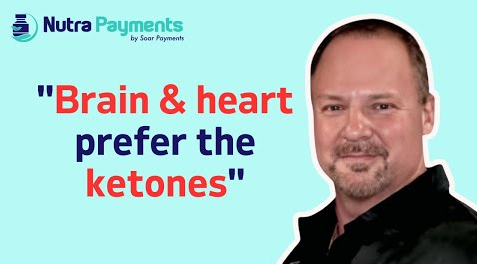The practice of intermittent fasting and the keto diet are probably the most popular topics when it comes to weight loss these days. The reason why is that THEY ACTUALLY WORK. Not only are they effective when it comes to weight loss, but you also receive the benefits of increased energy, better mental and physical performance, and improved health; this is a diet/lifestyle that improves your mind and body—ultimately increasing your chances of a long, happy life.
What is Intermittent Fasting?
Before we dive into the do’s and don’ts of intermittent fasting, it is important that you understand exactly what you are getting yourself into. As we mentioned earlier, intermittent fasting is currently one of the world’s more prevalent health practices. Not only can it help you lose that stubborn weight, but it also improves the person’s protection from illness, and ultimately betters your metabolic state.
The first thing you should know about intermittent fasting is that it is a specific eating pattern that requires you to cycle through eating and fasting with a handy schedule of your own design. The great thing is you get to decide when you eat. Much like any other diet, this fast has several different methods and supplements that can help you along the way. Supplements such as Real Ketones will help you to produce ketones while supporting appetite control. Additionally, it is easy to mix and provides you with the energy you need.
Conveniently enough, we are of course already fasting every time we sleep. This is highly advantageous as intermittent fasting for you can mean extending that fast by additionally skipping breakfast. The first meal you have should be at 12 pm followed by your last meal around 8 pm. This typically ends up being a 16-hour fast. As you can see, this fast is not impossible—it is actually quite easy.
Intermittent Fasting and How to Do it Right: The Do’s and Don’ts
Do
Following any diet or fast is going to require a change of lifestyle. Sometimes the change is dramatic, sometimes not so much. With intermittent fasting you must plan ahead, however, you do not have to quit the things you love. In the end, you must set yourself up for success. For instance, you should not try to fast during stressful times—commonly when people are stressed they tend to eat more. It is highly beneficial to plan the days you will fast and the days you will eat.
You CANNOT begin something that requires this much dedication without some preparation. For instance, beginning a fast when your home is full of junk food is diet suicide. Therefore, before you begin your fast, make sure to rid your kitchen of anything that is not keto/intermittent fast appropriate—this includes beverages. Second, you want to really zero in and focus on your intention and ultimate goals. Lastly, you want to be well-rested and healthy before you begin.
Vitamins and supplements are often necessary during intermittent fasting. So that you receive all the vitamins and nutrients your body needs. Utilizing them in liquid form is typically the best way for your body to receive it. Since you’re not eating, it is important to replace the nutrients your body needs. Products like Real Ketones' powder sticks will help you stay in ketosis while delivering all that your body needs to thrive.
Everyone is different, I think that goes without saying. What this means for the fast is, it is not necessarily right for each person. In fact, there are many people who should avoid this fast in order to protect their health. These include diabetics, breastfeeding women, pregnant women, individuals under 18, and anybody who has serious underlying health issues. Additionally, prescription drugs can sometimes cause unpredictable reactions. According to several dieticians, eating whole foods in their natural state and getting rid of sugary, fatty or highly processed foods is one of the biggest favors you can do for yourself. Ultimately you should be replacing these types of foods with fruits, veggies, and whole grains.
Don’t
While intermittent fasting requires a great deal of dedication, it is important that your chart your progress so to speak. By this we mean you need to listen to your body and how it is responding to the fast. Intermittent fasting can cause side effects. Therefore, if you begin to feel weak, dizzy, or simply unable to perform up to your normal capabilities, you need to stop the fast. Again, you always want to listen to your body.
So, you are fasting, GREAT! You are doing your body a major service that will pay off big in the end. It is important during intermittent fasting however that you do not overdo things by attempting a 5K or any other high-intensity cardiovascular activities. It is ok to exercise, but you must keep it simple.
Any fitness routine or diet is going to instruct you to drink a lot of water. Heck, even if you are not dieting, your body still needs a good deal of water, so drink up. While you are fasting, you especially need to pay attention to the amount of water you drink. In order to discover whether you are getting enough H20, check your urine—if it is light to clear, you are well-hydrated.
Focus on relaxing. Stressing yourself out over little things can actually raise your body’s level of cortisol. Cortisol is a hormone that stores fat while breaking down muscle. In order to ensure you get the most out of your fast, you should try practicing de-stressing techniques such as yoga and other light exercises. After all, you are fasting and must make sure to store energy, so you can effectively function throughout the day.
A Successful Intermittent Fasting Experience
If you are fit and mentally ready to kickstart your body into an optimal state of health, intermittent fasting could be just the trick you need. While it might seem overwhelming at first, as we mentioned earlier, it is indeed quite easy. With these guidelines and the right amount of support—you will successfully be intermittently fasting and reaping the benefits in no time!

 ACCOUNT
ACCOUNT
 CART
CART





